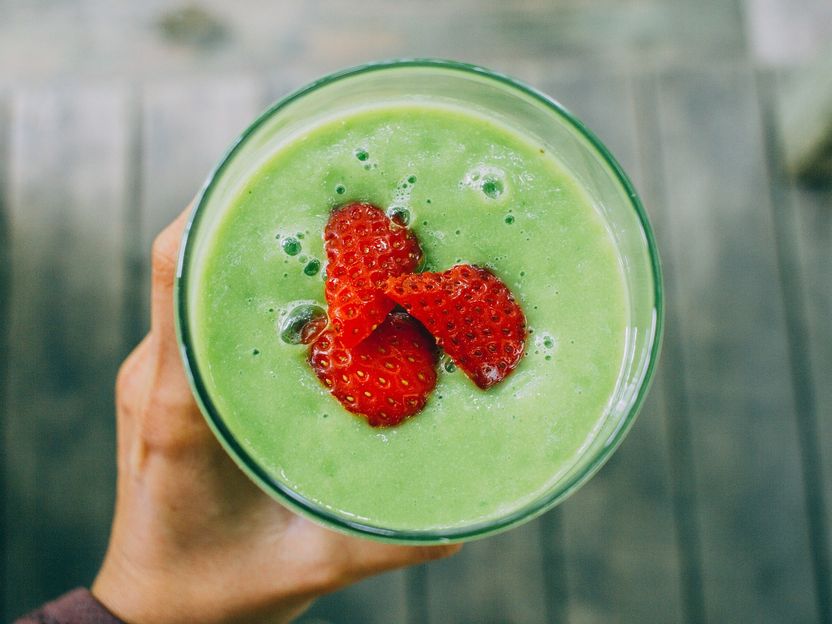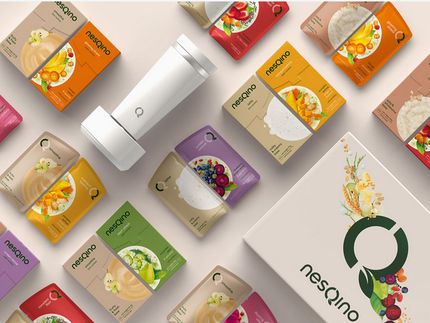Innovation spotlight: DIY superfood-based drink
Healthy drink with superfood ingredients
Nestlé has unveiled nesQino, a digitally-connected Q-mug machine that enables consumers to prepare their own healthy drink with superfood ingredients. There are three base sachets and seven superfood sachets. The base sachets are made from dairy milk, cereal, and plant-based ingredients, while the superfood sachets contain ingredients such as fruits, vegetables, nuts and seeds, roots, and microalgae. Users choose a base sachet and a superfood sachet, pour the contents in the Q-mug with water, and select the desired temperature. A mini-program allows consumers to customise the drink temperature, explore recipe combinations, and access nutrition information.

StockSnap/ Pixabay
Why it matters
One of the main impacts that COVID-19 has had on consumers is that they are prioritising their health more than before. However, while the intention to eat more nutritious food and do more physical exercise is high, lack of time, energy, and money are preventing them from doing so. This is leading to a growing demand for quick and convenient solutions, such as the nesQino, which enables consumers to better control their nutrition. The concept of superfood is still in its early stage in China, but the understanding that fruit, vegetables, nuts, and seeds are healthy is something consumers are aware of.
What else we’ve seen in DIY food and drink
To help users naturally balance a multitude of wellness-related concerns such as sleep, stress, immunity, digestion, metabolism, and weight, 1BalanceLiving in India has launched Ayurvedic health supplements based on each user’s unique profile through an interactive health quiz.
YOKO byYou in Denmark is a subscription-based DIY kit that allows consumers to make their own yogurt at home. The starter kit consists of nine glass containers, a thermometer and a thermos bag, as well as the active cultures.
Vitaboost is a personalised vitamins start-up in Thailand that prescribes and delivers the ideal set of vitamins to individuals based on the results of their blood test. Each supplement routine is customised and capsulated for each person according to formulas from doctors and pharmacists.
What’s next?
The Mintel Trend Driver ‘Wellbeing‘ indicates that there will be an emergence of bespoke health solutions that aim to fit the many disparate needs of consumers. Personalised nutrition is still in its early stage in China, and this is mainly due to the overabundance of information which makes consumers confused and overwhelmed. This poses challenges, but also opportunities, for brands to educate consumers about the nutritional values of certain foods that can benefit their wellbeing. Expect to see food brands become wellbeing partners with consumers, offering personalised diet and exercise plans to support consumers’ aim for healthier living.
Most read news
Other news from the department business & finance

Get the food & beverage industry in your inbox
By submitting this form you agree that LUMITOS AG will send you the newsletter(s) selected above by email. Your data will not be passed on to third parties. Your data will be stored and processed in accordance with our data protection regulations. LUMITOS may contact you by email for the purpose of advertising or market and opinion surveys. You can revoke your consent at any time without giving reasons to LUMITOS AG, Ernst-Augustin-Str. 2, 12489 Berlin, Germany or by e-mail at revoke@lumitos.com with effect for the future. In addition, each email contains a link to unsubscribe from the corresponding newsletter.





























































